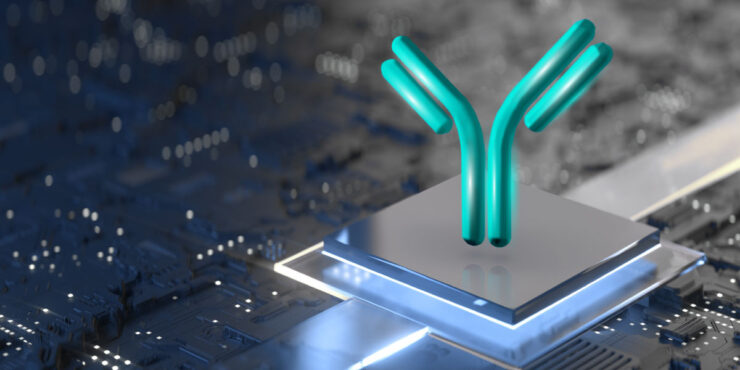
iBio (NYSEA:IBO) is developing next-generation biopharmaceuticals leveraging computational biology and 3D-modeling of epitopes enabling the discovery of new antibody treatments for hard-to-target cancers and other diseases.
“iBio’s AI Drug Discovery Platform is a precision-driven and deeply integrated technology stack designed to efficiently and consistently deliver antibody candidates against challenging targets and move them into the clinic faster,” Martin Brenner, DVM, Ph.D., CEO and CSO of iBio, says in an interview with BioTuesdays.
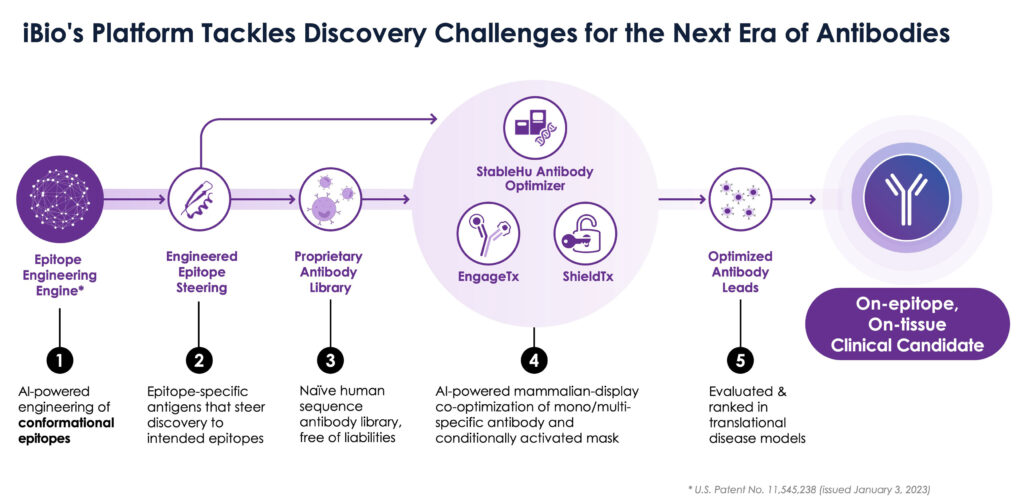
iBio aims to minimize drug failures, shorten drug development timelines, explore new frontiers for promising targets, and conserve resources utilizing its patented antibody discovery technology to diminish trial and error, advance novel candidates with partners, and propel its proprietary pipeline with the overarching goal of developing safer and more effective immunotherapies for difficult-to-treat cancers and other diseases.
“There is huge, untapped potential in this area however discovery has slowed down significantly in recent years because traditional antibody development methods are time consuming, costly, and often hit or miss,” Dr. Brenner points out. “Compared to the 91 proteins currently being targeted by approved antibodies, there are approximately 3,000 potential targets that could be pursued to treat diseases, but many are untapped as the industry simply hasn’t been able to make antibodies against these targets yet.”
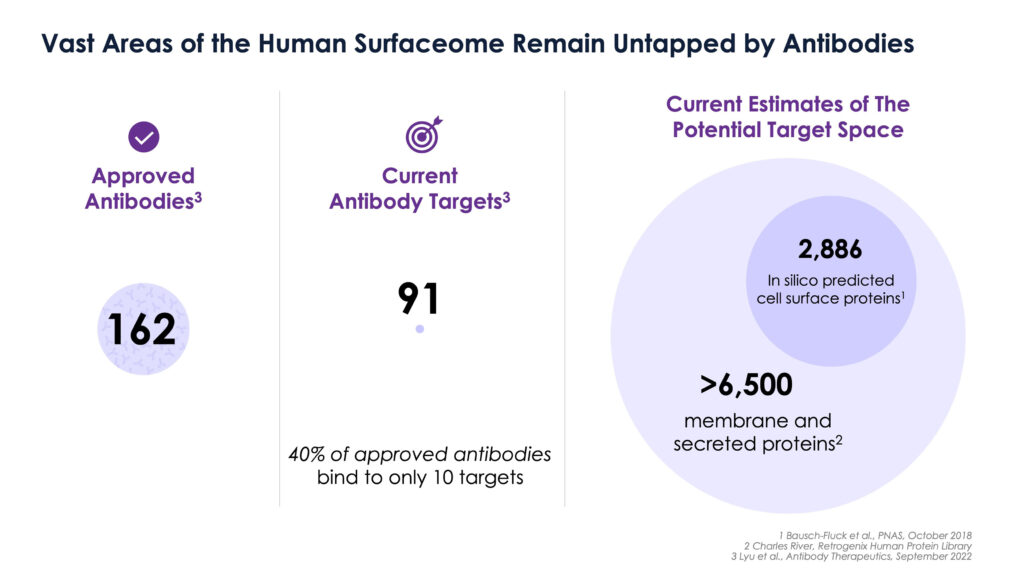
“This is where iBio comes in as we are uniquely positioned to solve these issues by moving beyond traditional trial and error with our highly efficient advanced technology, enabling us to accelerate the pre-clinical drug development process saving time and resources,” he adds.
Dr. Brenner explains what differentiates iBio from competitors is its AI platform’s ability to target specific regions of proteins which is crucial for killing tumor cells. This binding spot, or epitope, elicits the desired therapeutic mode of action when targeted with an antibody, enriching the discovery of the therapeutically active spots. iBio’s patented, AI-driven Epitope Steering technology enables the active steering of antibody discovery to those desirable binding sites on the target protein.
Dr. Brenner highlights iBio’s StableHu antibody optimizer technology employing a combination of machine learning algorithms and mammalian display technology. This approach enables the rapid identification of antibodies that are both highly developable and possess the desired characteristics. By integrating these technologies, iBio can streamline the antibody optimization process into a single step, significantly reducing the time required to less than 4 weeks.
“Once the antibody is optimized, we begin to combine antibodies binding different targets into a single molecule leading to bispecific or multi-specific antibodies, using our EngageTx technology,” he says.
iBio’s EngageTx is a CD3 T-cell engager antibody for optimizing next-generation bispecifics.
“It’s at this stage the safety of a molecule takes center stage, engaging targets specifically within the tumor but not in healthy tissue to elicit the therapeutic action or killing of cancer cells yet leaving healthy cells intact,” Dr. Brenner outlines. “The challenge lies in keeping the antibody inactive until it gets to the tumor tissue because these antibodies are very potent and can have systemic toxicity.”
To meet this challenge, iBio launched ShieldTx in November 2023. ShieldTx is an antibody masking technology for delivering on-epitope, on-tissue clinical candidates with enhanced safety and developability. “This technology gives us the safety aspect which is critical to the success of an antibody campaign” Dr. Brenner contends. ShieldTx masks the antibody and thereby locking it in an inactive state until it gets to the tumor tissue, at which point it is unlocked to elicit its effect – to kill the cancer cell.
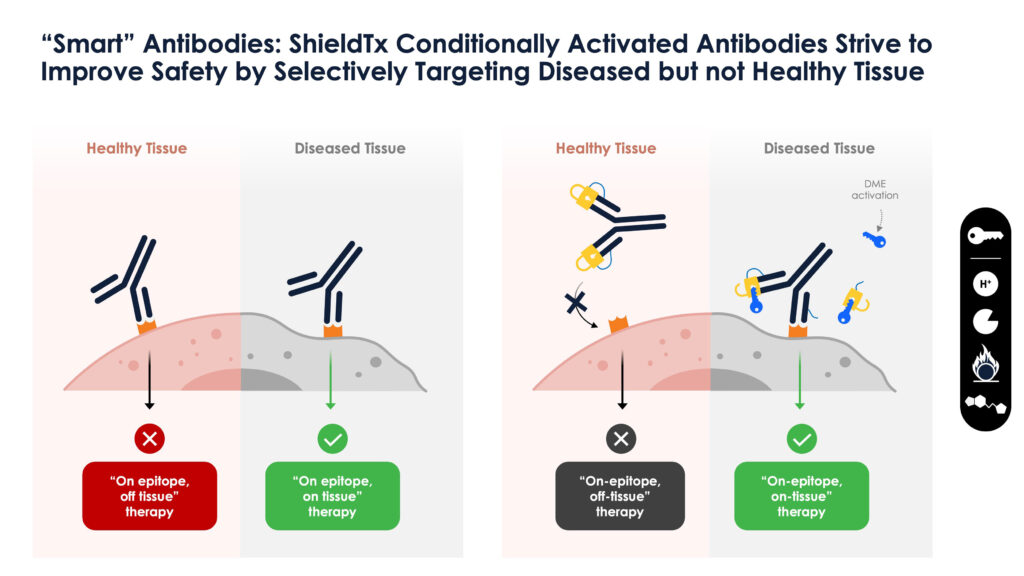
Dr. Brenner explains that although many companies are developing masking technologies, iBio sets itself apart with its integrated approach. iBio’s technology not only identifies antibodies using engineered epitopes but also uses these epitopes as masks. This innovation bypasses the typically complex and time-consuming process of constructing masks. By combining StableHu technology with mammalian display, we can simultaneously optimize the antibody, its mask, and the linker that connects them in a single step. Dr. Brenner summarizes, “This allows us to rapidly identify and refine antibodies, transform them into multi-specific molecules, and enhance their safety by ensuring they are activated only upon reaching the tumor.”
Moreover, Dr. Brenner says iBio’s unique AI design engine puts the company in a position where it is not strictly limited to a niche subset of targets but rather a generalizable solution and diversity in the targets it can go after. “As such, we are in a position to help our partners solve complex problems they may not be able to solve on their own.”
One of the earliest adopters of machine learning and biology bilinguality, Dr. Brenner maintains iBio’s talented team of experts combine machine learning-based tactics with traditional methods to streamline early drug discovery and expedite treatments for some of the most challenging diseases facing humanity. “Data scientists and biologists usually don’t speak the same language so there ends up being a gap,” he suggests. “One of our strengths is our biologists are all trained in machine learning eliminating silos and communication challenges.”
Recently, iBio’s R&D team moved into a new facility with equipment and resources to fully support its antibody screening, antibody protein characterization, and tissue culture assay development, Dr. Brenner says. “This enables the development and performance of assays in-house saving time and ensuring the team is working with the highest quality data.”
Dr. Brenner describes iBio’s business model as layered with three fundamental components including strategic partnerships, proprietary pipeline development, and third-party collaborations.
“To grow a more focused, capital-efficient business, we intend to secure partnerships for existing molecules or discovery projects against new targets, advance fast followers from our preclinical pipeline, and engage with third-party collaborators to expand our core therapeutic focus,” he says.
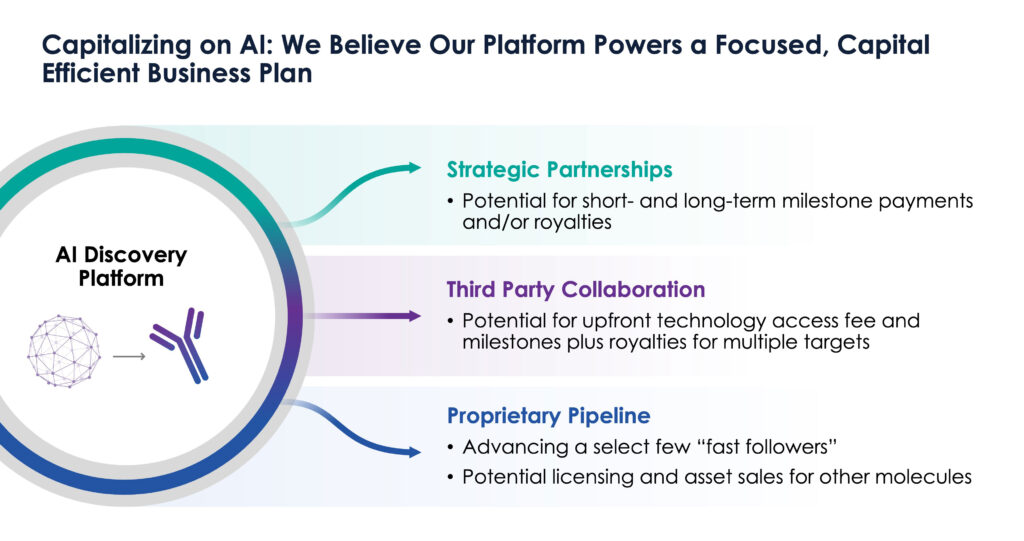
• • • • •
To connect with iBio or any other companies featured on BioTuesdays, send us an email at [email protected].


